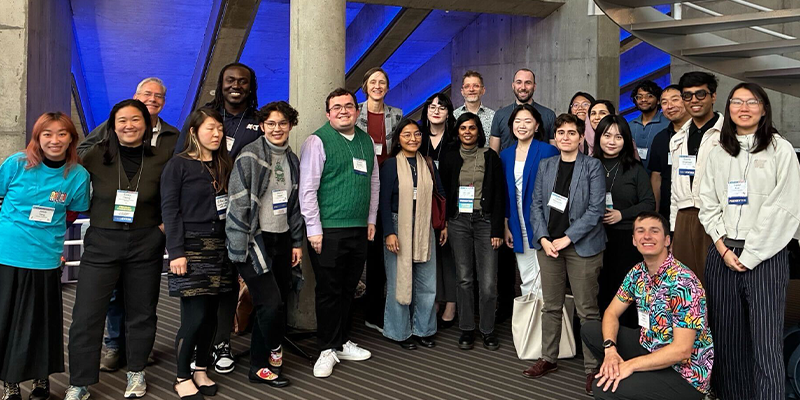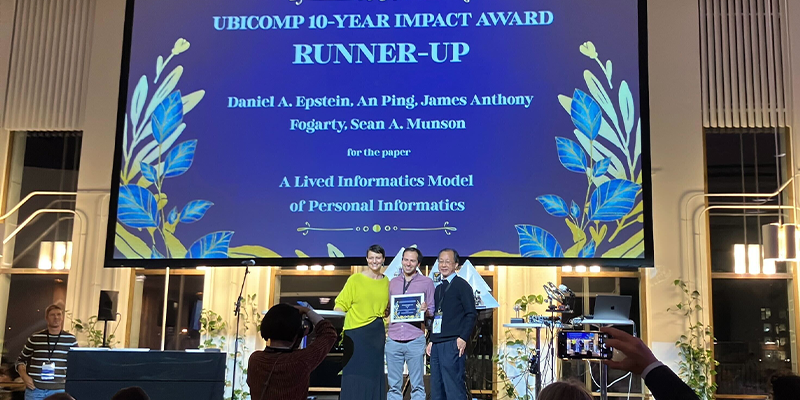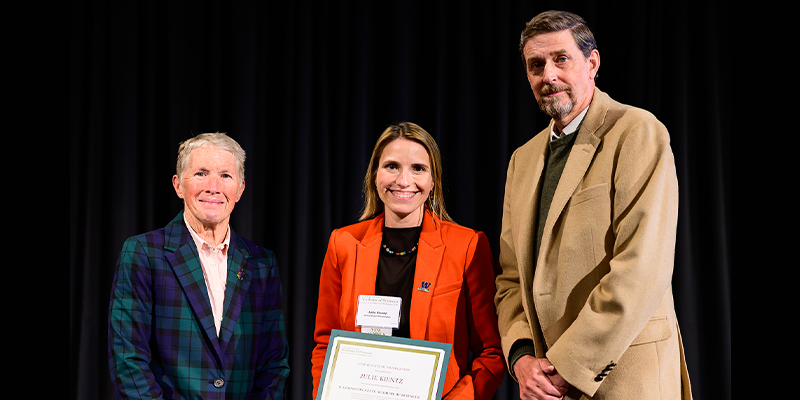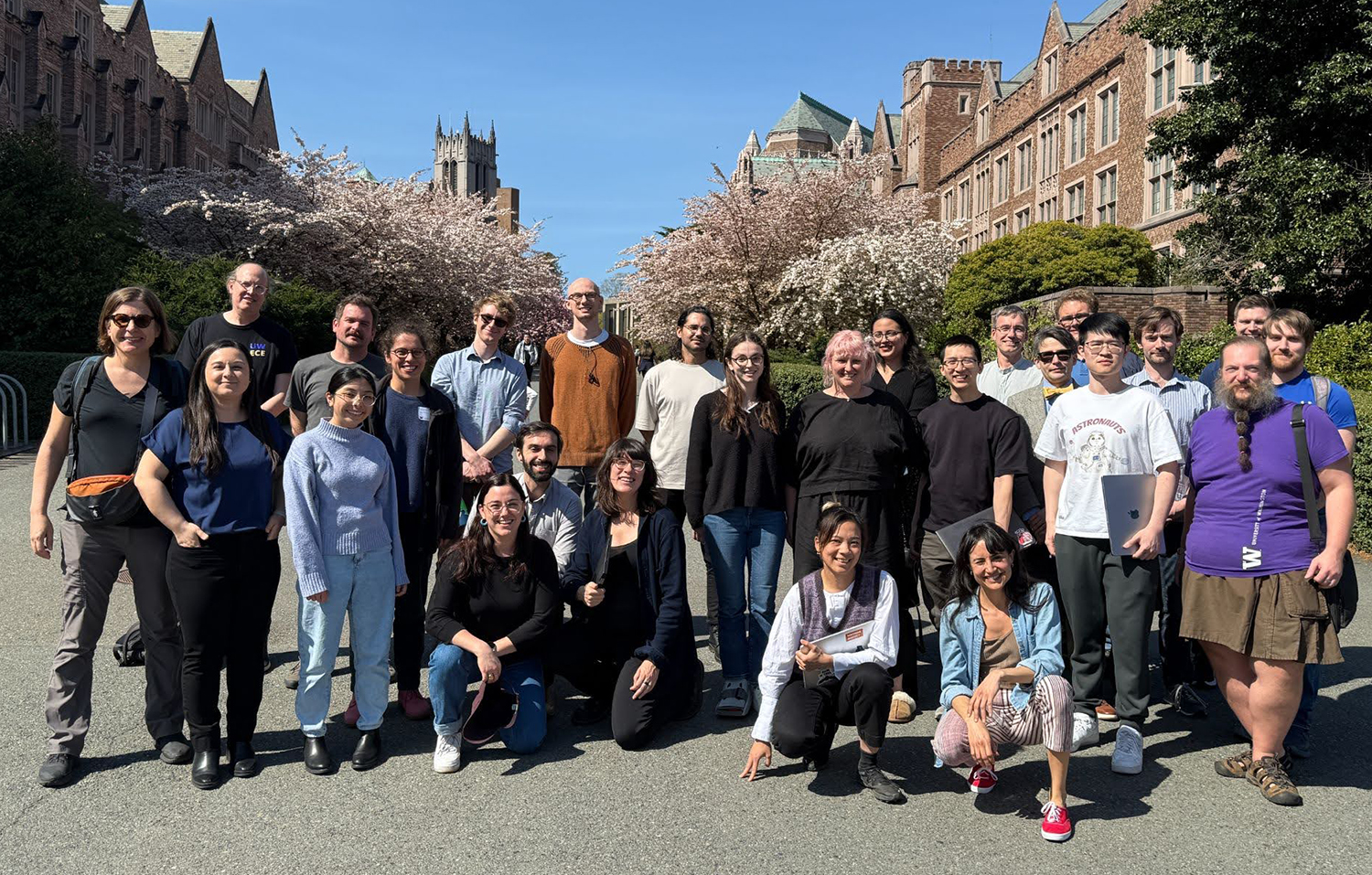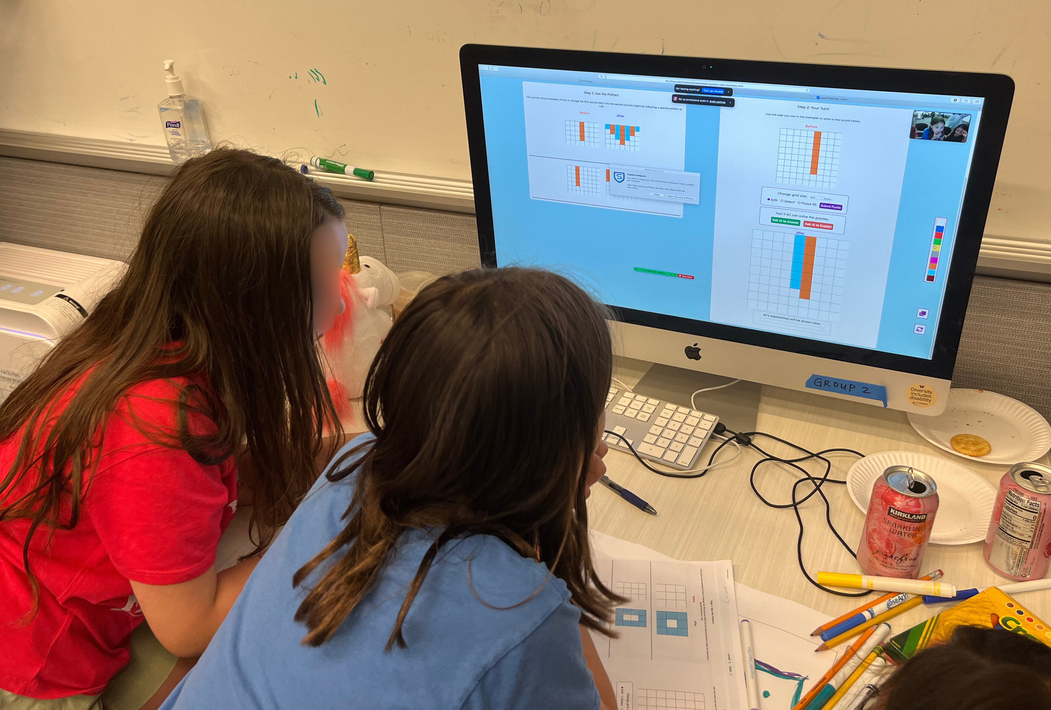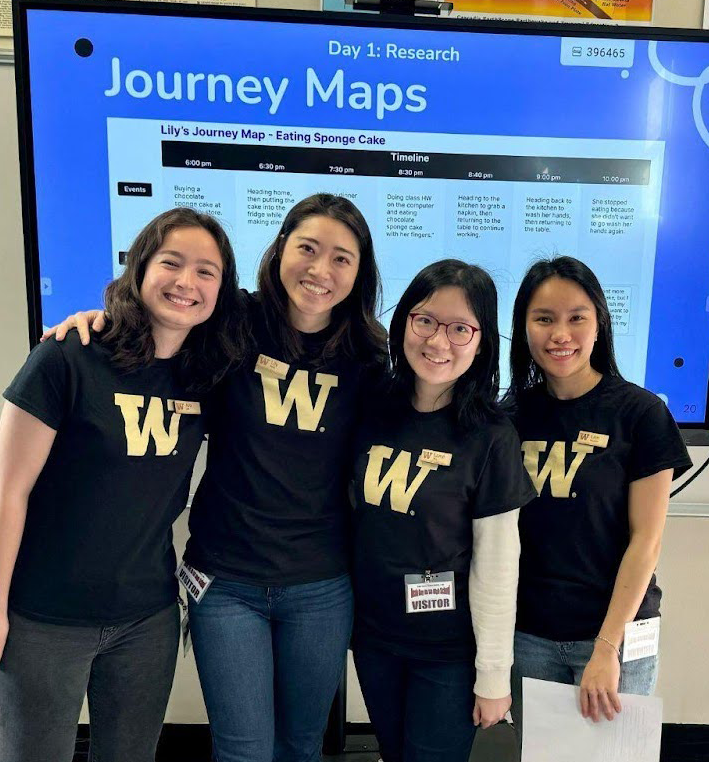Human Centered Innovation
for Washington and the World
IMPACT REPORT: HUMAN CENTERED DESIGN & ENGINEERING
New from HCDE
Research Impact Highlights
From clean water to clean energy, mental health to AI literacy, HCDE researchers are applying human-centered methods to some of society’s most pressing challenges.
Scientific Discovery
Designing human-centered automation for discovery
Associate Professor Nadya Peek is creating open, adaptable automation systems that help scientists run more reproducible, creative experiments. By building flexible tools and open-source communities, her work expands who can participate in scientific discovery and how research gets done.
Clean Energy
Advancing renewable marine energy to strengthen coastal communities
Assistant Research Professor Shana Hirsch studies how renewable marine energy can create jobs and long-term economic stability in coastal regions.
"Academic research is a powerful driver of new knowledge, often with more depth and openness than what is typically found in industry. It sparks ideas that reach far beyond the lab and is fueled by curiosity, giving students and researchers the freedom to explore big questions that shape our world. Continued funding is essential to sustain this discovery and ensure knowledge is created for the public good."
Safe Water
Bridging gaps to safe drinking water in Washington schools
Assistant Professor Katya Cherukumilli leads research to address drinking water quality in Washington schools by designing tools that support water testing, data interpretation, and remediation.
Mental Health
Improving mental healthcare with UW’s ALACRITY Center
Professor Sean Munson and collaborators in UW’s ALACRITY Center co-develop digital tools and systems to deliver evidence-based behavioral treatments through clinics, schools, and community settings.
AI Literacy
Helping kids think critically about AI
Professor Julie Kientz and PhD student Aayushi Dangol are developing tools like AI Puzzlers to help children reason about artificial intelligence and understand the limits of generative AI.
Research Security
Leading the nationwide effort to protect US research security
The SECURE Center unites the US research community to address critical security challenges while preserving the openness that drives scientific progress.
Watch & Explore

Research Updates
Browse our hub for recent publications, awards, presentations, and media converage involving HCDE faculty, PhD students, and research scientists.
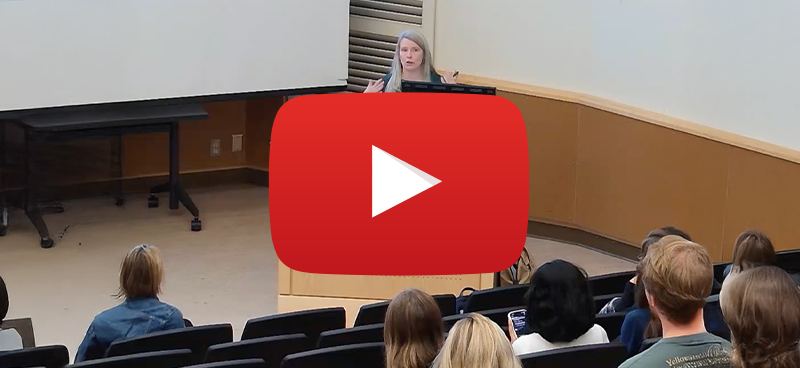
2025 Research Speaker Series
View recorded talks from HCDE’s Autumn 2025 seminar, highlighting research at the intersection of design, data science, technology, and society.
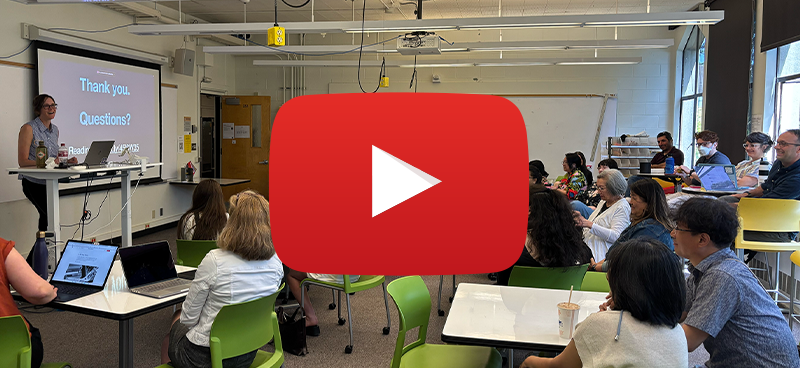
Foundations & Futures of HCI
Watch a teach-in with Professor Kate Starbird on the past, present, and future of HCI—and how today’s technologies grew from federally funded research.
HCDE in the News
Recent media coverage featuring HCDE faculty, students, and research.
Geekwire • OCTOBER 26, 2025
From stress relief to self-discovery: UW researchers reveal the deeper impact of video games
NBC NEWS • june 17, 2025
How Minnesota shooting conspiracy theories took over social media feeds
Seattle times • july 24, 2025
KUOW • may 25, 2025
Clock is ticking for scientists to make the case against funding cuts
Interdisciplinary Research Centers
ALACRITY
Mental Health Innovation
Co-developing digital tools and systems to make evidence-based mental health care more accessible and scalable.
Home unit: Department of Psychiatry & Behavioral Sciences
HCDE lead: Sean Munson
CIP
Center for an Informed Public
Combating online rumoring, mis- and disinformation through research, media literacy tools, and policy work.
Home unit: Information School
HCDE lead: Kate Starbird
CREATE
Accessible Tech for All
Leading national efforts to embed accessibility into tech design through community partnerships and cutting-edge research.
Home unit: Paul G. Allen School of Computer Science & Engineering
HCDE lead: Leah Findlater
SECURE
Safeguarding US Research Integrity
Protecting the research ecosystem by developing inclusive tools and policy frameworks that promote security without compromising academic freedom.
Home unit: College of Engineering
HCDE lead: Beth Kolko
HCDE Outreach: Inspiring Washington's K-12 students in Engineering
For over a decade, HCDE has brought human-centered design to K–12 classrooms across Washington state through hands-on, community-driven outreach. Led by students and faculty, the program inspires young learners to see themselves as designers and problem-solvers—especially in communities with limited access to STEM.
Since relaunching in 2023, the program has reached over 350 students with age-appropriate, culturally responsive workshops.
Explore HCDE Outreach
Students + Industry: Partnering for Impact
HCDE’s industry partnerships give students valuable hands-on experience by connecting classroom learning with real-world challenges. Through sponsored projects, internships, and mentorship, students collaborate with professionals to apply human-centered design methods to current issues in technology, health, education, and more.
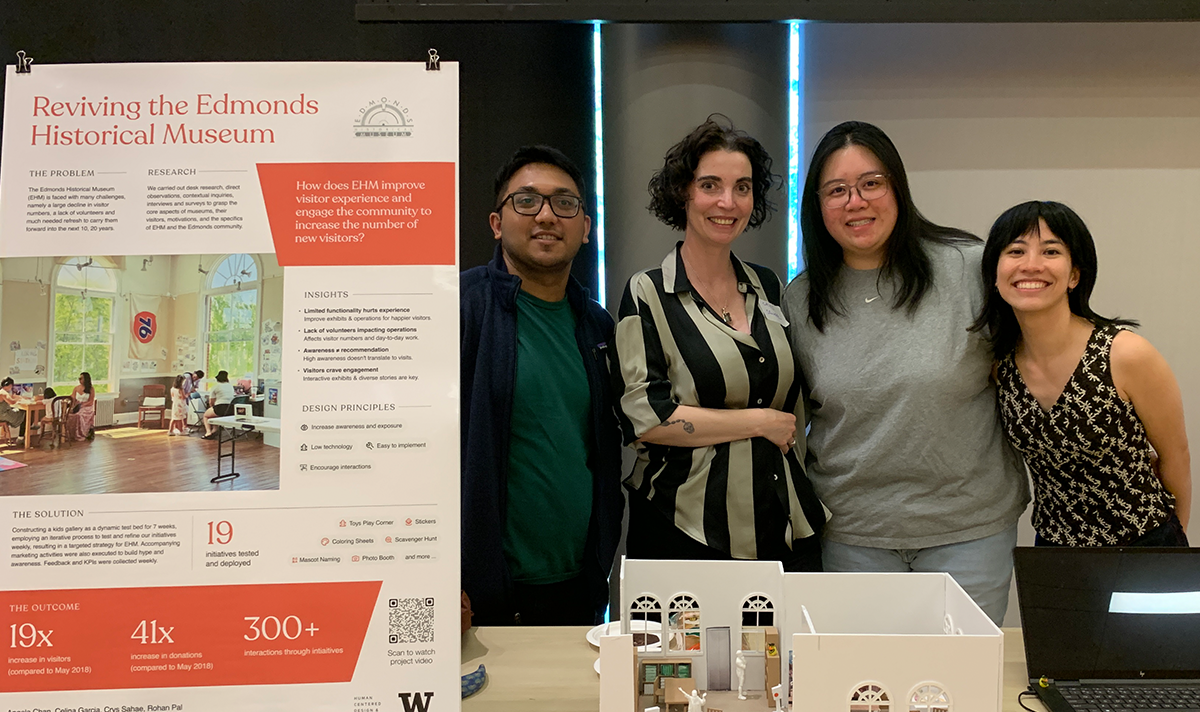
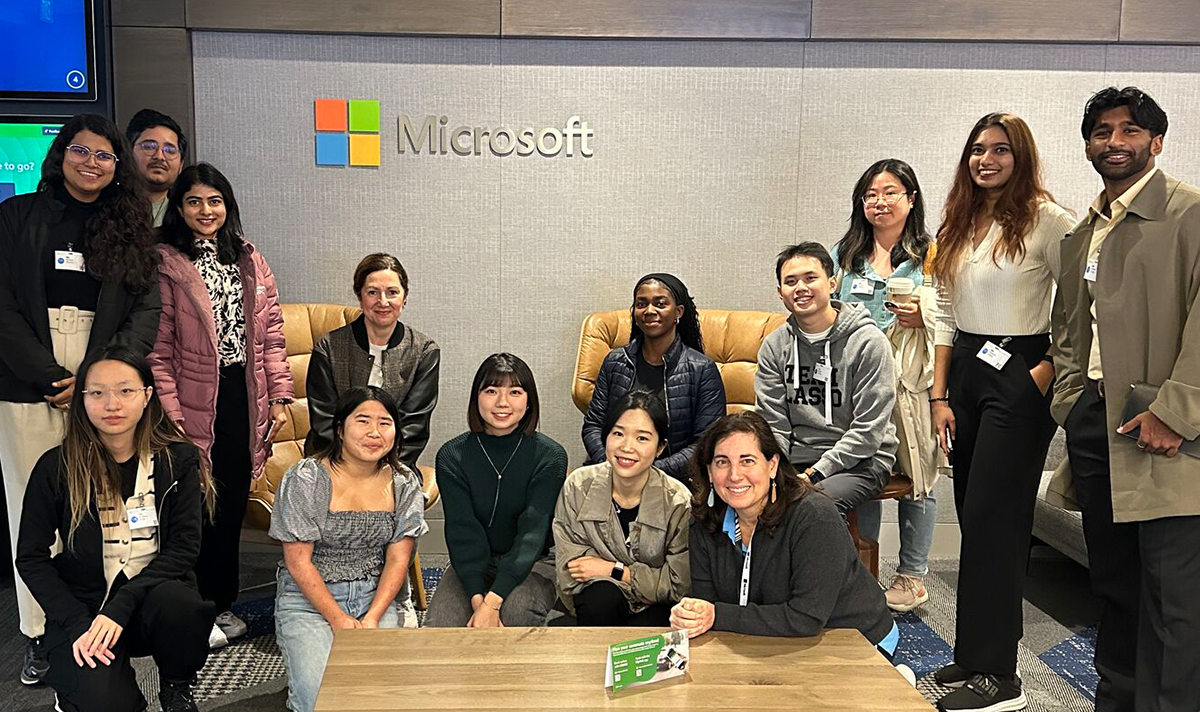
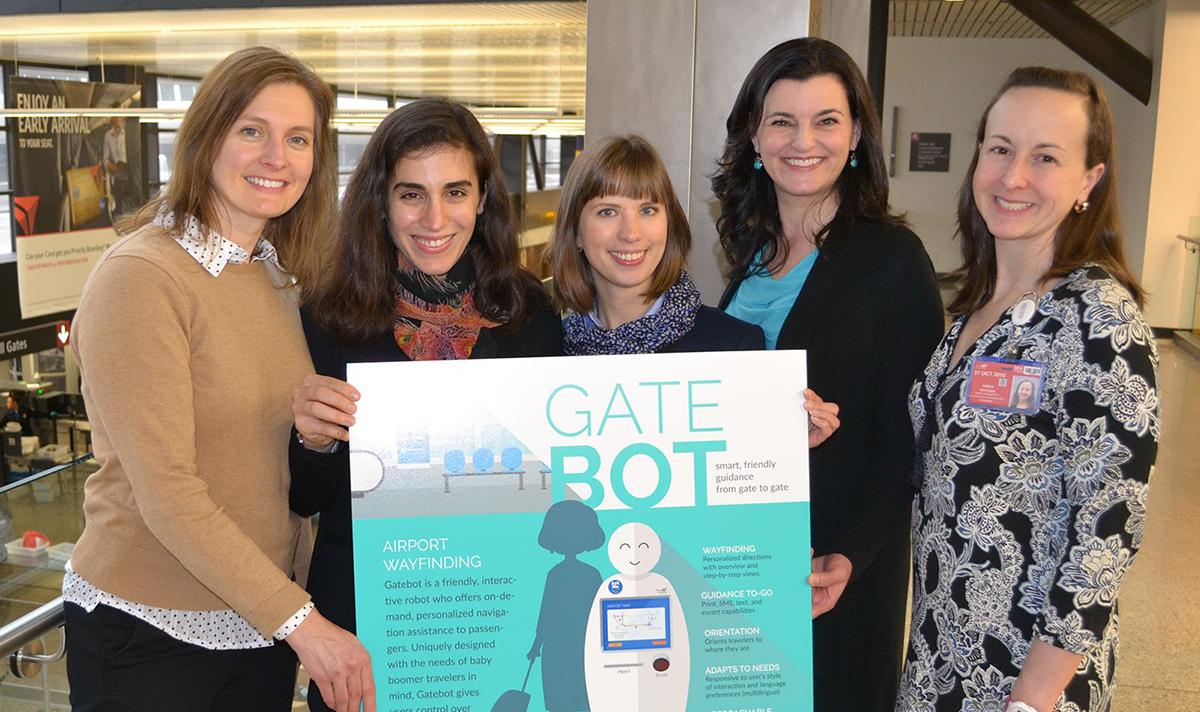
Washington-based partnering organizations in 2024–2025
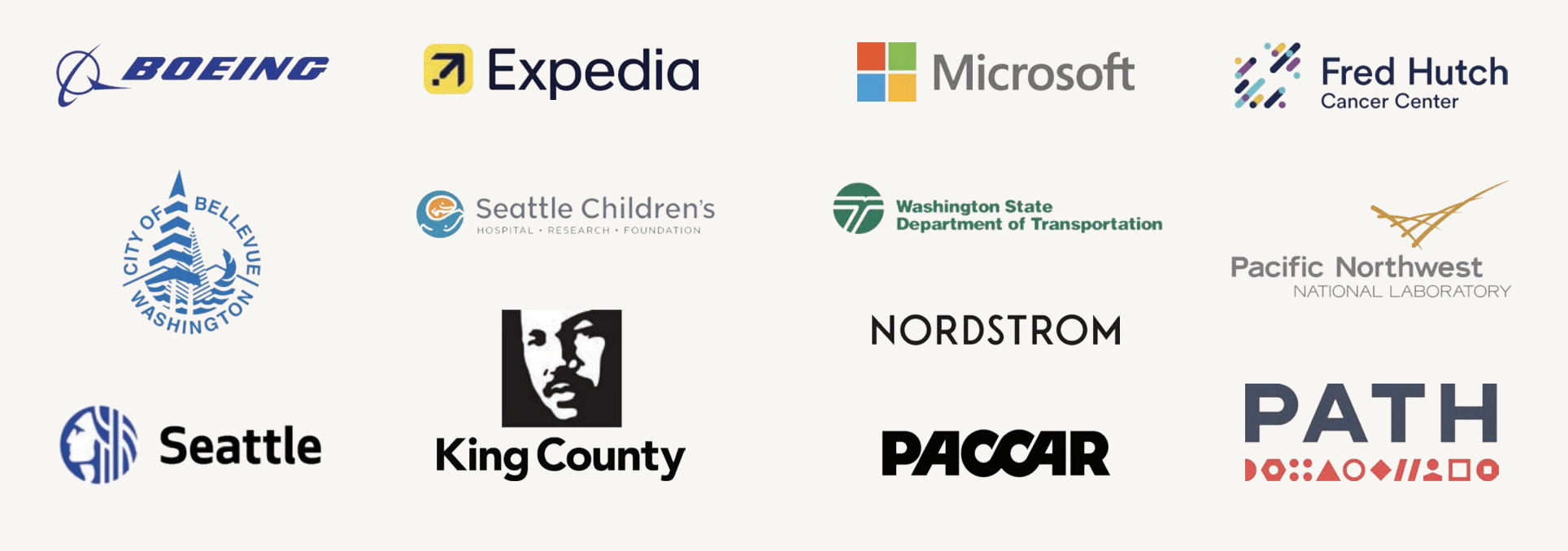
Educating Washington’s Future Engineers
Undergraduate program • 2025–2026 year
The HCDE undergraduate program blends design, engineering, and social science to prepare students to create technologies and systems that are grounded in human needs.
The program attracts a diverse student body, with strong representation from women, first-generation college students, and communities historically underrepresented in STEM fields. This inclusive environment fosters rich collaboration and ensures that a broad range of perspectives are reflected in the design of future technologies.
69%
Women Students
helping to close the gender gap in tech fields
18%
First-Generation College Students
72%
Students Underrepresented in STEM Fields*
14%
Federal Pell Grant Eligible Students
* Includes Women or NonBinary students, and students whose race is African American, Native American, Pacific Islander, Hispanic, or a combination of those categories.
Directed Research in HCDE
HCDE’s Directed Research Groups offer faculty-led research experiences for undergraduate and graduate students. These projects give students the opportunity to work alongside Washington communities while contributing to ongoing, human-centered research.
Yakima Valley, WA
Designing Healthy Eating Futures for Latinx Adolescents
HCDE researchers are exploring how design can support healthy eating behaviors among Latinx families in the Lower Yakima Valley. Students are analyzing interview transcripts, shaping co-design workshop activities, and reviewing existing interventions to develop concepts that reflect the needs and goals of adolescents and their families.
Wapato, WA
Usability Study of Google Classroom in Wapato High School
HCDE researchers are collaborating with Wapato High School students to evaluate the usability of Google Classroom, the district’s primary education platform since 2020. Students support this effort by developing instructional materials, refining usability test protocols, and helping guide analysis to enhance the high schoolers’ learning experience and research outcomes.
Alumni at Work in Washington
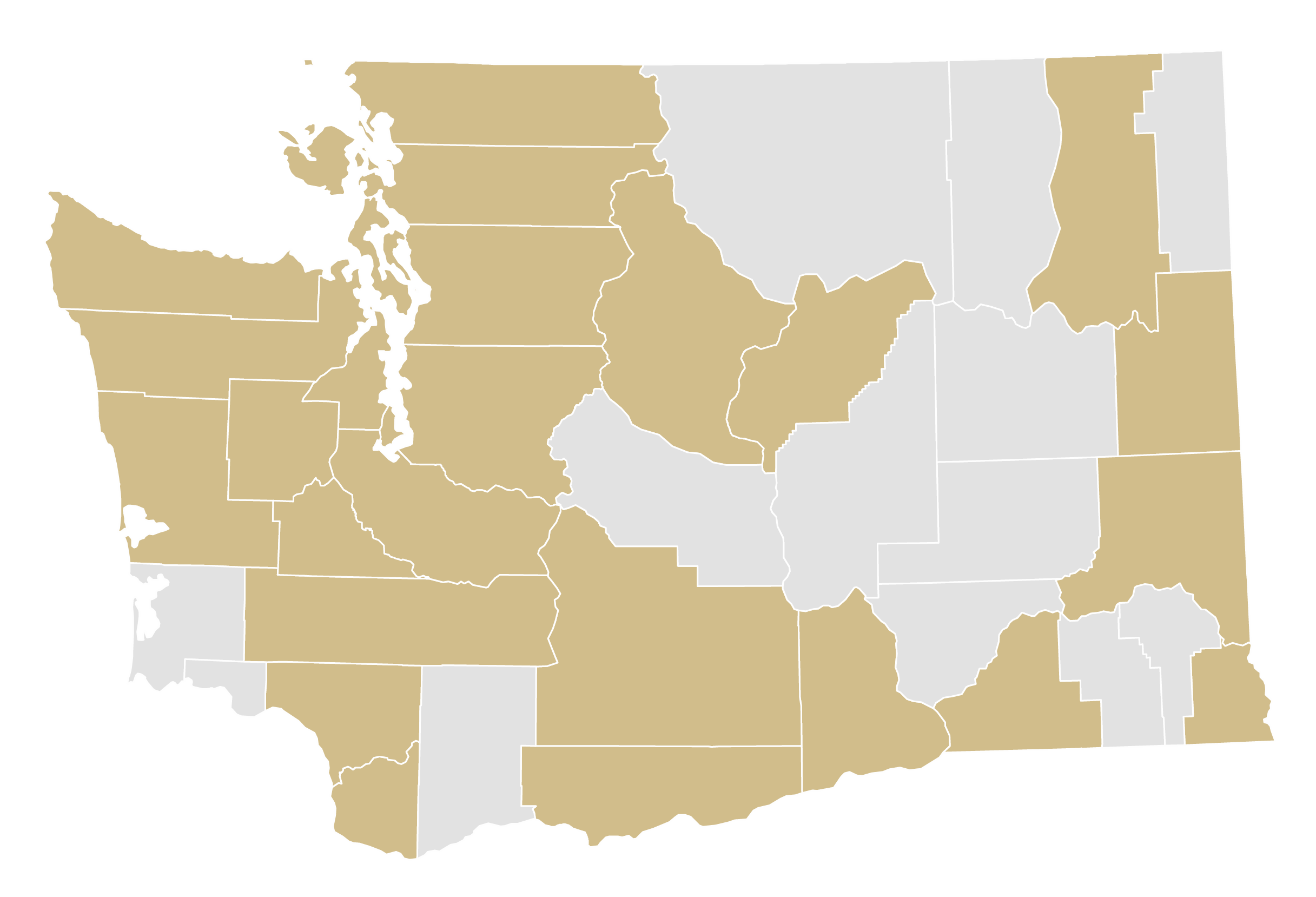
1,700+
HCDE alumni live in Washington State, adding new talent to the state's workforce every year.
Top Washington-Based Alumni Employers
- Microsoft
- Amazon
- University of Washington
- Expedia Group
- Nordstrom
Top HCDE Alumni Job Titles
- UX Designer
- Product Designer
- Product Manager
- Software Engineer
- UX Researcher
HCDE alumni are applying human-centered design to improve technology, services, and systems in communities across Washington—from Seattle to the Yakima Valley.

Mallory Kester
HCDE BS ’18
Kennewick, WA
Hanford Tank Waste Operations & Closure (H2C)
Rotational Safety Specialist
Mallory Kester works at H2C, the company leading the nation’s largest radioactive waste cleanup effort, where she helps advance preventative strategies to reduce workplace hazards and protect worker safety. As part of a specialized two-year program in environmental health and safety, she draws on her HCDE training to support technical systems, processes, and documentation for high-risk sites.

Todd Billow
HCDE BS ’01
Richland, WA
Pacific Northwest National Laboratory (PNNL)
Group Lead, Human Centered Computing
Todd Billow is a UX and Product Designer, and Group Lead for Human Centered Computing in the AI & Data Analytics Division of Pacific Northwest National Laboratory. Todd leads a team of about 90 User Experience Designers, User Interface Engineers, Human Factors Researchers, and Software Test Engineers working in national security applications at PNNL, helping government agencies interpret big data and make high-consequence decisions using AI and analytics tools.

Yuliana Flores
HCDE BS ’18
Wapato, WA
University of Washington
PhD Candidate & Research Assistant
Yuliana Flores researches engineering education with a focus on educator agency and inclusive curriculum design. She collaborates with Wapato High School to teach Usability Testing, helping students develop the language and confidence to critique educational technologies. She also partners with the Center for Engineering Learning & Teaching to support faculty nationwide in improving students’ understanding of design processes.

Smitha Bharadwaj
HCDE MS ’18
Seattle, WA
Qualtrics
UX Design Manager
Smitha Bharadwaj is a UX Design Manager at Qualtrics, a leading experience management platform focused on customer, employee, and strategy research. She leads teams that design developer tools for building custom experience management applications and systems for collecting user feedback. Her work supports Qualtrics’ mission to help organizations serve their customers and employees in more proactive and personalized ways.
Are you an HCDE alumnus making an impact in Washington State? Let us know what you’re up to!
Support HCDE Research & Education
Speak up
Share how UW research has benefited you and your community and why federal research investment matters.
Donate
A gift to the HCDE Faculty Support Fund sustains innovation and provides vital resources amid research budget cuts.
Partner
Collaborate with HCDE on real-world challenges, advancing research and expanding opportunities for students.

